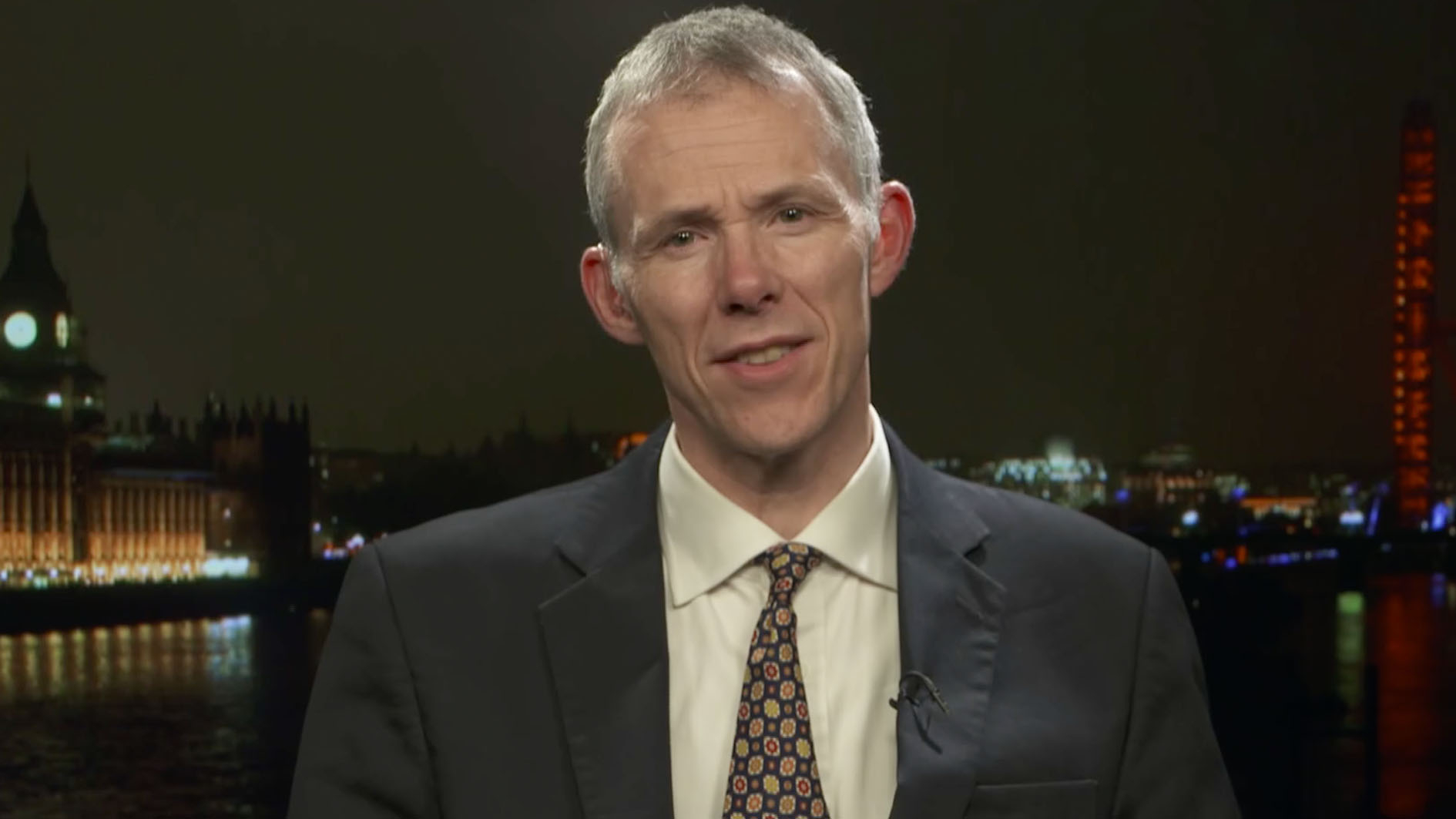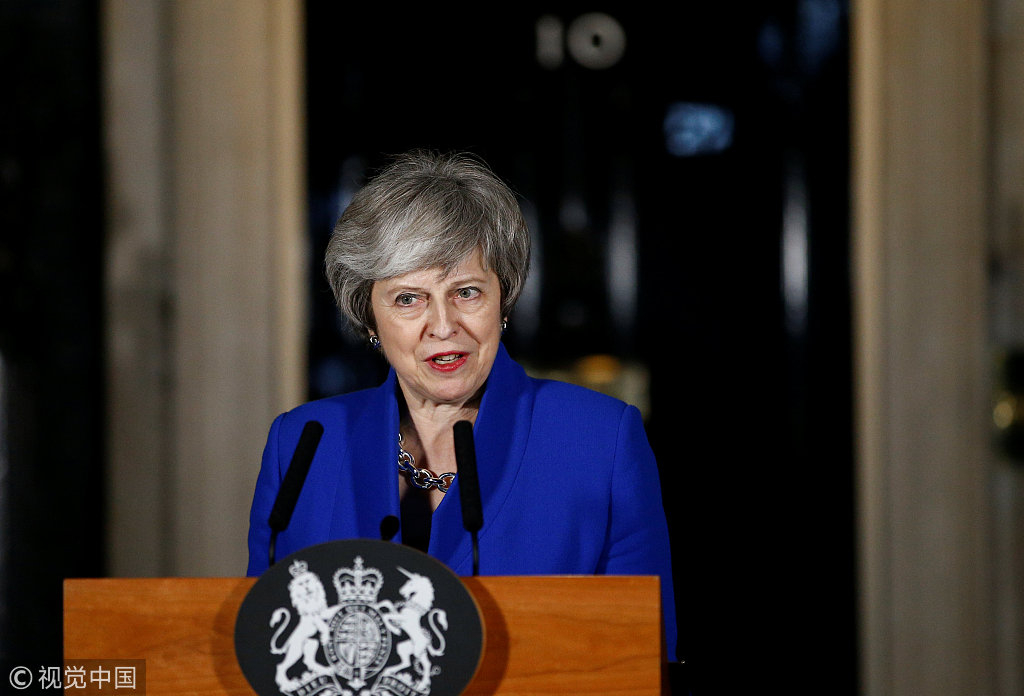
Opinions
09:53, 17-Jan-2019
What will be the future of Brexit?
Updated
19:53, 17-Jan-2019
CGTN's The Heat
01:24

UK Prime Minister Theresa May lost her Brexit deal vote as expected, but the result of a 230-vote difference marks the most significant defeat for a sitting government in history. Later, the opposition party leader, Jeremy Corbyn called Theresa May's administration a "zombie government" that "cannot govern" as he tabled a no-confidence vote for the government.
On the following day, May wins the no-confidence vote by a majority of 19. “I stand ready to work with any member of this house to deliver on Brexit and ensure that this house retains the confidence of the British people,” May said after the vote.
Despite surviving the no-confidence vote, the March 29 deadline of the negotiation with the European Union draws near. There is little time for the house to come up with at least some consensus.
What will be the future of the Brexit – no deal, a new deal, a new election, or a new referendum? Nothing is certain in the mayhem of the British parliament on this issue. The only certainty seems that Britain will exit the EU on March 29 – deal or no deal.
David Smith, the Washington DC Bureau Chief for The Guardian newspaper identifies the defeat as a humiliation to May's government. The results are estimated before the vote because the deal satisfies nobody's interest.
Two-and-a-half years of effort has gone to nothing. David concludes that May's defeat is partly because of the division within the party – some MPs wished to remain in the EU while hardcore Brexiters led the campaign. The exit has been decided but no one has been able to alter this path.
Tim Bale, the professor at the Queen Mary University of London, believes that the unwillingness to hold another general election in the Conservative Party has bolstered Theresa May in winning the no-confidence vote.
May's win will put the opposition leader Jeremy Corbyn in a puzzling situation. Corbyn has to decide whether to push for a second no-confidence vote and a general election indiscriminately or campaign for another referendum on Brexit.

Britain's Prime Minister Theresa May makes a statement after winning a confidence vote outside 10 Downing Street in London, Britain, January 16, 2019. /VCG Photo
Britain's Prime Minister Theresa May makes a statement after winning a confidence vote outside 10 Downing Street in London, Britain, January 16, 2019. /VCG Photo
The Irish border issue has been one of the sharpest controversies in the deal. According to Ben Lowry, the deputy editor of the Belfast News Letter, there is, and there will continue to be a seamless border between Northern Ireland (which is part of the UK) and the Republic of Ireland. After Brexit, there will be a sea border between Northern Ireland and the rest of the United Kingdom to realize the exit of the customs union.
The deal, therefore, hurts the unionists (the Democratic Unionist Party, DUP) in Northern Ireland, who believe that a sea border will harm the unification of the United Kingdom. Therefore, the party voted against the deal on Tuesday while it is expected to continue to support the current government on the no-confidence vote.
On the other side of the deal, the European Commission President Jean-Claude Juncker warns that the time is almost up for the deal. If there is no deal before the deadline, how can the EU help a member country to manage the transition period of leaving the bloc?
Alexis Poulin, the co-founder of Le Monde Moderne and an EU affairs analyst, suggests that the EU could extend the March 29 deadline a bit further and the transition period should go even further to 2020. There are too many things to be done before the Brexit date. Right now the traveling problem is a big issue, and both London and Brussels are not well prepared for the Brexit.
Among all other solutions – another referendum, merely denying the referendum or a no-deal Brexit, David believes that postponing Brexit may be the best option.
If no deal was agreed upon, it will leave UK trade with the EU under WTO terms of a third country. This will mean tariffs on many goods, customs checks, and more transaction costs. Bale further suggests that the no deal situation will hurt industries, schools, and hospitals. Though no deal is the default option, a majority of MPs in the house still think that some compromise is better than no deal. Therefore, Bale is still confident that the parliament will eventually avoid the no-deal situation.
All the options are on the table, but no one is able to tell which one will possibly happen in the few weeks ahead. The division within the parliament has put too much uncertainty over the problem. Only when we reach the deadline can we expect a united parliament that is reluctant to accept what is for the greater good.
(The Heat with Anand Naidoo is a 30-minute political talk show on CGTN. It airs weekdays at 7:00 a.m. BJT and 6:00 p.m. Eastern in the United States.)
(If you want to contribute and have specific expertise, please contact us at opinions@cgtn.com.)

SITEMAP
Copyright © 2018 CGTN. Beijing ICP prepared NO.16065310-3
Copyright © 2018 CGTN. Beijing ICP prepared NO.16065310-3